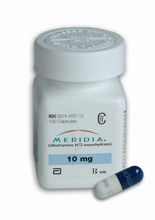After the oxytocin sniff, the men's bodies burned more fat, and their blood sugar remained lower than the placebo group. On a later date, the men switched roles and the results were consistent—the oxytocin group ate less food and burned more fat.
MORE: 10 Ways To Speed Up Your Metabolism In Just One Day

Oxytocin's appetite-suppressing powers have been demonstrated in animals, says lead study author Elizabeth A. Lawson, MD, an assistant professor of medicine at Harvard Medical School and director of the Interdisciplinary Oxytocin Research Program at Massachusetts General Hospital. But this is the first study to show that the same effect holds true for humans, she says.
You may know oxytocin as the "bonding hormone"—it plays a role in labor and lactation, plus it helps us interpret social cues and smooths social interactions. However, researchers are realizing that the hormone has a wide range of effects: "Oxytocin is also a key regulator of energy metabolism," says Lawson, an endocrinologist who has studied appetite pathways for years. "In addition to reducing food intake, it increases energy expenditure."
MORE: 5 Easy Ways To Drop Weight Without Sweating Or Starving Yourself
Although scientists have yet to figure out how oxytocin works its magic, Lawson believes that it may influence how the brain responds to hunger-related hormones, and it seems to increase sensitivity to insulin—which would help explain its positive effect on blood sugar.
In the United States, oxytocin is only approved for use intravenously to induce labor and lactation. In Europe, a nasal spray produced by Novartis is already approved to help facilitate labor. "Further study is needed," says Lawson, "but I think oxytocin nasal spray is a promising treatment for obesity and its metabolic complications."




